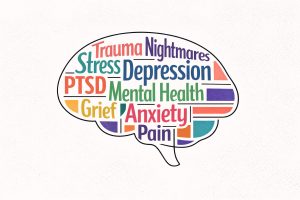An eating disorder is an unhealthy attitude to food, which can take over an individual’s life and cause illness and even death. It can involve eating too much or too little or becoming obsessed with your weight and body shape.
In 2013-2015, eating disorders cost the NHS between £3.9 and £4.6 billion each year in treatment costs, and £9.4 to £11.1 billion each year in indirect costs. 30 per cent of young people referred for eating disorders treatment waited over 18 weeks and another 34 per cent waited over six months. For many, their condition worsens whilst waiting.
Eating disorders often develop between the ages of 15 and 25, which is a time of significant neurological development and life changes. There is evidence that treatment for eating disorders is most effective during a window of 3 years from eating disorder onset.
Aware of the impact of eating disorders, our Mental Health team led the Health Innovation Network national programme to spread and adopt Early Intervention Eating Disorders from April 2020 to March 2023. Initially the programme was intended to run for 1 year across 8 sites, but was extended to 3 years and including 54 eligible Trusts due to demand.
The approach selected was FREED (First episode Rapid Early intervention for Eating Disorders), a model developed by South London and Maudsley NHS Foundation Trust and King’s College London. This is an evidence-based, specialist care package for 16 to 25-year-olds with a first episode eating disorder of less than 3 years’ duration.
Broadly based on the early intervention model for psychosis, FREED overcomes barriers to early treatment and recovery and provides highly coordinated early care, with a central focus on reducing the duration of an untreated eating disorder. It consists of a service model and a care package.
At programme close in March 2023 all 15 Health Innovation Networks had supported 48 of the 54 NHS Mental Health Trusts to have adopted or commissioned the FREED model, with the remaining 6 Trusts working towards adoption. You can read more in the end of programme learning report here.
The FREED model continues to be developed and shared, nationally and internationally, through Kings College London and South London and Maudsley NHS Foundation Trust, with support from NHSE.






